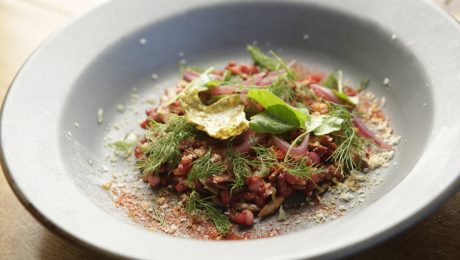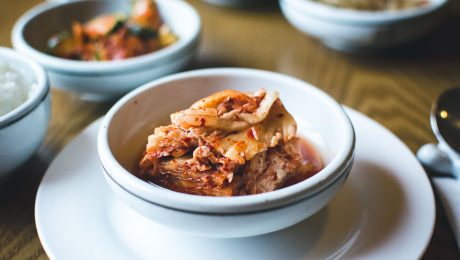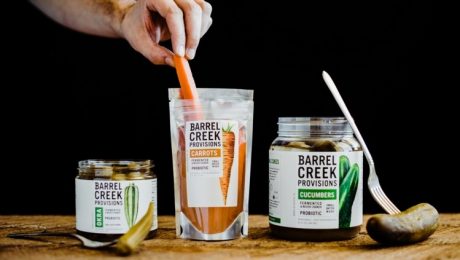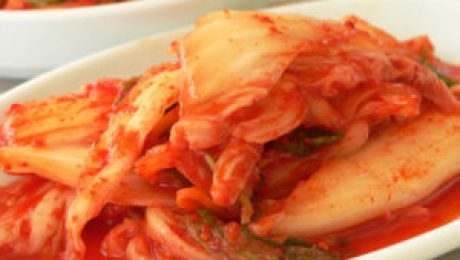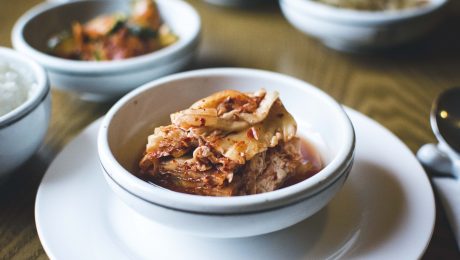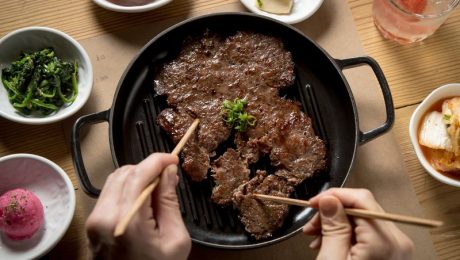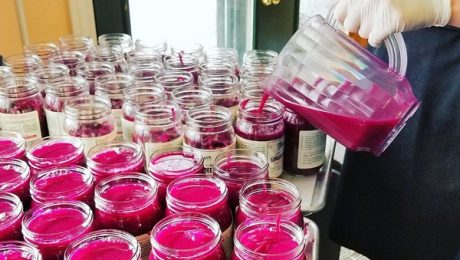Fermentation Dominating 2019 Food Prediction Lists
Fermentation is dominating 2019 food prediction lists. The New York Times says fermented foods and fermented drinks will rule in 2019. The year’s flavor profile will be “Sour and funky, with shades of heat,” melding fermented ingredients with millennial taste buds. Probiotics and prebiotics will continue to reign as consumers focus on gut health. “As the obsession with digestive health dovetails with the fascination for fermenting, kimchi, sauerkraut and pickled things will work their way into new territory. Smoothies with kefir will be popular, and kombucha will show up in unexpected places like salad dressings,” the article continues. What will you be eating in 2019?
Read more (New York Times)
- Published in Business
Kimchi: The Condiment’s Rising Fame
“Dealing with fame” – an ABC Life story about kimchi. The condiment is consumed at every meal by 63 percent of Koreans. And today the salty fermented cabbage is served at restaurants all over the world, from breakfast diners to burger joints. Australian chef Peter Jo: “Kimchi isn’t a dish, it’s a technique.”
Read more (ABC Life)
- Published in Food & Flavor
Kimchi: the Fermented Flu Vaccine
Kimchi is a scientifically proven safeguard against the flu. New research proves, with fall flu season around the corner, we should stock up on kimchi. The fermented Korean food has an antiviral effect that stops the growth of the influenza virus. Flu-infected mice that ate kimchi had a higher survival rate and lost less weight. The study also referenced the 2003 SARS pandemic in Hong Kong and China — Korea was the only place where few people were infected with the virus, attributed to Korean’s love of kimchi. Study results were published in the Journal of Microbiology.
Read more (PR Newswire)
- Published in Health
Probiotics Build Stronger Bones
Probiotics are good for the bones, a new study finds. Older women who took probiotics had less bone weakening than women who did not take probiotics. Fermented foods rich in probiotics include pickled veggies (sauerkraut, pickles, kimchi), yogurt, kefir, kvass and natto.
Read more (New York Times)
- Published in Science
Barrel Creek Provisions breathes new life into fermented foods
- Published in Business
Researchers Study Kimchi Fermentation
Great news for kimchi producers wanting to expand to vegan products. A new study from researchers at Brown University found that vegan kimchi made with miso paste instead of fish sauce or brined shrimp produces the same final healthy bacteria as traditional kimchi. This is because of “the selective pressure of the fermentation environment” which is so powerful that a new ingredient doesn’t impact the bacterial community.
Global Kimchi market to grow as Global Kimchi heats up
More consumers are buying kimchi. A market analysis of the Korean fermented vegetable dish found that, globally, kimchi sales will grow by 20-45% a year through 2022. Since 2012, the kimchi market has steadily grown in the U.S. and India.
- Published in Uncategorized
Her Name Is Han Is NYC’s Cutting Edge of Korean Soul Food
A growing population of Korean Americans means an uptick in Korean restaurants across the U.S. The new Her Name is Han in NYC serves modern twists on Korean soul food. Fermented dishes include radish kimchi jambalaya, banana-flavored rice beer and homemade ssamjang (fermented soy bean sauce).
Read more
- Published in Uncategorized
Central NY couple’s tiny ‘Food and Ferments’ biz wins national food award
Food & Ferments is making headlines for their 1st place prize for their Hearts on Fire flavored kraut in the national Good Food Awards.Dave and Carly Dougherty run the Central NY biz and make sauerkrauts, kimchi, kvass and tonics.
- Published in Uncategorized
Konnecting through Kimchi, South Korea’s national dish
Kimchi “represents labor and hard work. It’s about a connection to the land and to our ancestors,” says Saehee Chang, owner of Korea Konnect and Kosari Kimchi in Wisconsin. Americans use kimchi as a condiment, but in Korea the fermented salty and sour veggies are a side dish.
- Published in Uncategorized

